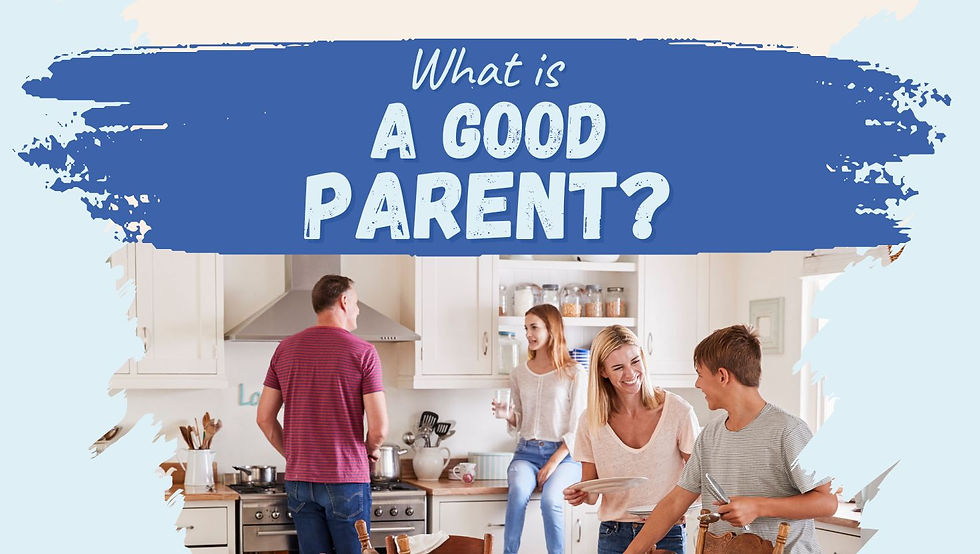Holding Hope: A Parent’s Path from Crisis to Coaching
- Marti Roveda
- Jul 28, 2025
- 3 min read
Updated: Aug 13, 2025
When our son had just barely turned 17, we found ourselves at a painful crossroads. After nearly a year of outpatient and inpatient treatment attempts, relapses, and emotional turmoil, we had to look our child in the eye and say: “You can either pack a bag and go figure it out, or you can accept the help being offered.”
That was the hardest day of my life.
But it was also the day everything began to shift.
Our family’s journey through substance use disorder—especially related to high-potency THC—wasn’t quick or clean. It was messy, raw, and humbling. Today, our son is five years sober, working as an addiction counselor, and living a life of purpose. But that healing didn’t happen in isolation. Our whole family had to do the work.
That’s the story I share in a recent podcast interview with Conversations with Cumberland Heights/ARCH (Adolescent Recovery of Cumberland Heights) Academy, where our son began his path to recovery. If you’re a parent in the thick of it—or someone who works with families—I invite you to listen to our full conversation. It’s real, emotional, and rooted in hope.
From Control to Clarity: The Turning Point
Like so many parents, I didn’t see it coming. My son was social, smart, and engaged—or so I thought. But the lying started. The detachment. The cycle of relapse. And eventually, I had to admit: no amount of love or micromanaging could fix this.
That moment of surrender was excruciating. But it was also liberating. Because it forced me to turn inward and ask the hard question: What do I need to heal, so I can show up differently?
What Parent Recovery Really Means
Parent recovery is a parallel process. While our kids are learning to live substance-free, we’re learning to live without controlling their every move. We’re learning to heal our own wounds—our anxiety, our perfectionism, our family-of-origin patterns—and show up with steadiness instead of fear.
When our son entered ARCH Academy, my husband and I committed to doing our own work. That meant therapy, support groups, working the 12 steps, and getting honest about the ways we’d been reacting instead of responding. It changed us. And when our son came home, he noticed. “You’ve changed,” he said. That was one of the most meaningful moments of my life.
Building a Parent Tribe—So No One Walks Alone
Our family’s healing didn’t come just from treatment. It came from community. From sitting in rooms (and on Zooms) with other parents who got it—who didn’t judge, fix, or sugarcoat. Just listened. And held space.
That experience inspired me to create the ARCH Parent Tribe, a virtual support network for parents with children in treatment. What began as a single Zoom call has grown into a thriving, multi-faceted program with weekly meetings, peer support, a book clubs, and a private Facebook community.
Parents often tell me, “I thought I was the only one.” You’re not. And you never have to be.
From Volunteer to Purpose-Driven Coach
Supporting parents became more than a side passion. It became a calling. That’s why I founded Equanimity Parent Coaching—a heart-centered coaching practice for parents navigating substance use, mental health, and neurodivergence in their kids and young adults.
Whether you’re in crisis, in transition, or looking to do the deeper work of reclaiming your calm and clarity, I offer:
A 12-week Empowered Parent Program
Individual coaching
Support group facilitation for treatment centers
Consulting to help build parent engagement programs from the ground up
This work isn’t about fixing your child. It’s about rediscovering your peace so you can hold the hard moments with love—and stop getting pulled into the chaos.
Your Next Step
If your child is struggling with substances or mental health, you might feel like you’re drowning in fear and uncertainty. Please know: there is a path forward. It won’t be easy, but you don’t have to walk it alone.




Comments